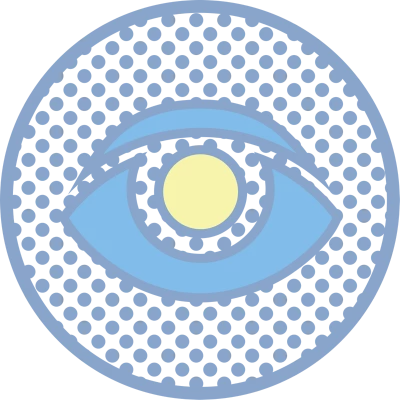What is Paralytic squint?
This occurs when one or more eye muscles are paralyzed, leading to restricted eye movement and double vision.
Paralytic Squint Symptoms
- Double vision which is compensated by the patient by closing the eyelid of the paralysed eye or by turning the head in order to position the eye better.
- Vertigo/Giddiness

Paralytic Squint Causes
-
Trauma
-
Diabetes
-
Hypertension
-
Stroke
-
Demyelinating disease
-
Brain tumours
Paralytic Squint Risk Factors
-
Old age
-
Metabolic disorders like Diabetes, Hypertension and elevated cholesterol levels
-
Hereditary-family history of Demyelinating diseases; Myasthenia

Paralytic Squint Prevention
-
Healthy lifestyle
-
Metabolic control
-
Periodic eye and general health evaluation
Paralytic Squint Signs
-
Strabismus/squint
-
Limitation of eye movement
-
Compensatory head posture
-
False orientation
Paralytic Squint Diagnosis
-
Assessment of vision in each eye
-
Assessment of angle of squint for distance , near and side gazes using prism
-
Assessment of eye movements
-
Double vision charting using Hess chart
-
Visual field testing
-
Color vision testing
-
Assessment of muscle strength by special tests
-
Complete eye evaluation
Paralytic Squint Treatment
-
In the case of Paralytic Squint Treatment, upon diagnosis, surgical intervention is the preferred choice for doctors in almost all instances.
-
Prism glasses
-
Botox injection
-
Eye muscle surgery to relieve double vision and improve eye movement
Paralytic Squint Complications
-
Intractable double vision especially in adults interfering with daily activities
-
Neck strain due to abnormal head posture
-
Persistent giddiness/dizziness
-
False orientation
In conclusion, the of Paralytic Squint Treatment and other Eye Treatment is tailored to the individual’s needs and the severity of the condition. Early intervention, a comprehensive assessment, and collaboration between eye care professionals play a vital role in ensuring successful outcomes and improved visual function.
Written by: Dr. Manjula Jayakumar – Sr. Consultant Ophthalmologist, TTK Road

Do not ignore eye trouble!
Now you can reach our senior doctors by booking an online video consultation or a hospital appointment
Book an appointment now